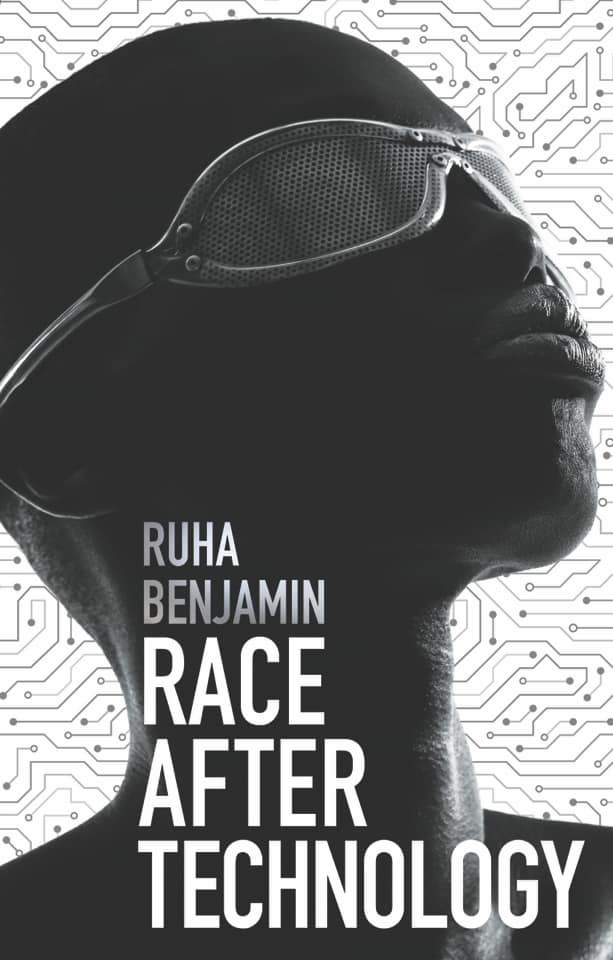Ruha Benjamin: Race After Technology: Abolitionist Tools for the New Jim Code (2019)
Filed under book | Tags: · abolitionism, algorithm, artificial intelligence, dna, facebook, google, prediction market, race, racism, segregation, social media, surveillance, technology

“From everyday apps to complex algorithms, Ruha Benjamin cuts through tech-industry hype to understand how emerging technologies can reinforce White supremacy and deepen social inequity.
Benjamin argues that automation, far from being a sinister story of racist programmers scheming on the dark web, has the potential to hide, speed up, and deepen discrimination while appearing neutral and even benevolent when compared to the racism of a previous era. Presenting the concept of the “New Jim Code,” she shows how a range of discriminatory designs encode inequity by explicitly amplifying racial hierarchies; by ignoring but thereby replicating social divisions; or by aiming to fix racial bias but ultimately doing quite the opposite. Moreover, she makes a compelling case for race itself as a kind of technology, designed to stratify and sanctify social injustice in the architecture of everyday life.
This illuminating guide provides conceptual tools for decoding tech promises with sociologically informed skepticism. In doing so, it challenges us to question not only the technologies we are sold but also the ones we ourselves manufacture.”
Publisher Polity Press, Cambridge, 2019
ISBN 9781509526406, 1509526404
x+285 pages
Interview with author (Sanjana Varghese, Guardian, 2019)
Comment (0)Sheila Jasanoff: Science at the Bar: Law, Science, and Technology in America (1995)
Filed under book | Tags: · biotechnology, dna, genetics, law, science, technology, united states

Issues spawned by the headlong pace of developments in science and technology fill the courts. How should we deal with frozen embryos and leaky implants, dangerous chemicals, DNA fingerprints, and genetically engineered animals? The realm of the law, to which beleaguered people look for answers, is sometimes at a loss—constrained by its own assumptions and practices, Sheila Jasanoff suggests. This book exposes American law’s long-standing involvement in constructing, propagating, and perpetuating a variety of myths about science and technology.
Science at the Bar is the first book to examine in detail how two powerful American institutions—both seekers after truth—interact with each other. Looking at cases involving product liability, medical malpractice, toxic torts, genetic engineering, and life and death, Jasanoff argues that the courts do not simply depend on scientific findings for guidance—they actually influence the production of science and technology at many different levels. Research is conducted and interpreted to answer legal questions. Experts are selected to be credible on the witness stand. Products are redesigned to reduce the risk of lawsuits. At the same time the courts emerge here as democratizing agents in disputes over the control and deployment of new technologies, advancing and sustaining a public dialogue about the limits of expertise. Jasanoff shows how positivistic views of science and the law often prevent courts from realizing their full potential as centers for a progressive critique of science and technology.
With its lucid analysis of both scientific and legal modes of reasoning, and its recommendations for scholars and policymakers, this book will be an indispensable resource for anyone who hopes to understand the changing configurations of science, technology, and the law in our litigious society.
Foreword by Richard C. Leone
Publisher Harvard University Press, 1995
Twentieth Century Fund Books/Reports/Studies
ISBN 0674793021
303 pages

